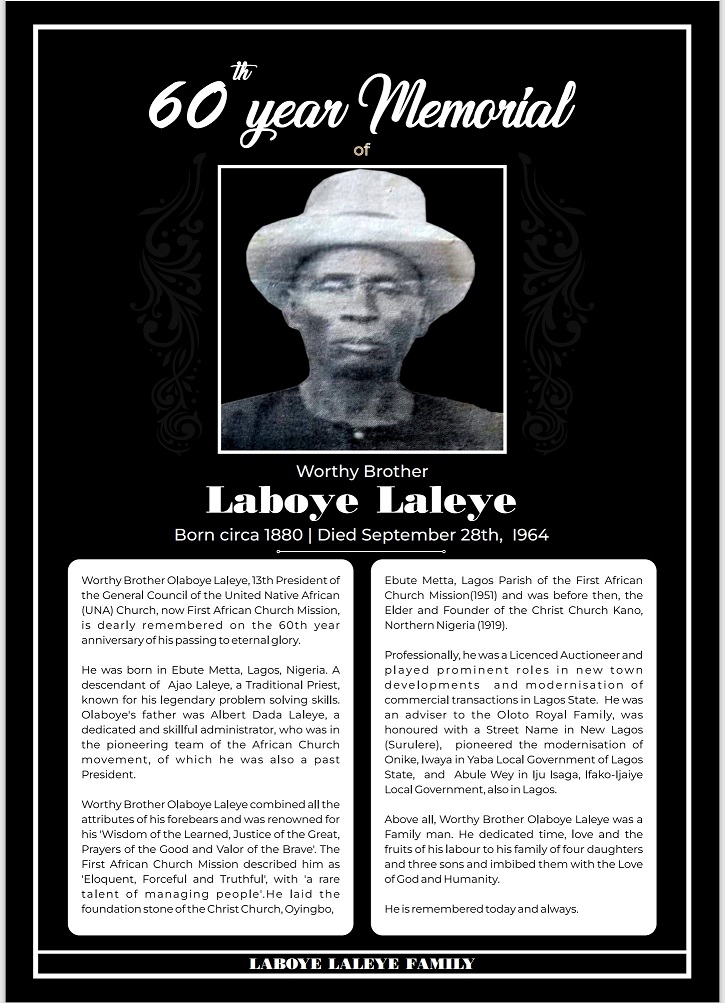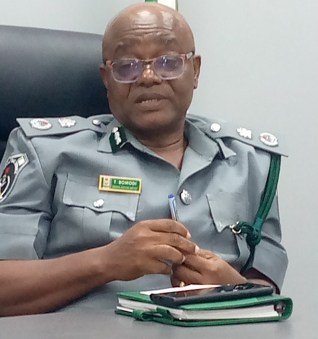Maritime
N9b cargo scanners generates furore

By Eguono Odjegba
Intrigues, petty politicking, power play and self serving interests may have led to the collapse of the N9billion cargo scanners purchase deal approved by the federal government since 2018, is currently generating dust.
The failed purchase has also left the leadership of the Nigeria Customs Service, NCS, with integrity question marks, for its inability to timely process the deal, believed to have scaled through the Bureau for Public Procurement, BPP, with in turn issued the purchase approval and tied to prevailing tax regime and exchange rate of the originating year.
The controversy widened not only on the ground that the NCS for its own reason failed to take advantage of the approval but that its supervisory Finance Ministry, may have also been involved in divisive move, allegedly tinkering with other options of recruiting an alternative contractor to handle the project.
While the scale of suspicion of internal sabotage stretches endlessly, the failure of NCS to pull through with the approval granted it, is helping to oil the speculation that either the customs leadership prefer that import inspection regime remain tied to manual physical examination with its widespread sharp practices and corruption, or that the customs leadership simply does not have an understanding of the mandate of his assignment.
The immediate consequence of this apparent negligence is that the service is still in the woods in its ability to determine offensive imports that are potentially dangerous, like illicit arms and ammunition, and other imports such as explosives and high profile controlled chemicals.
While industry watchers have attributed the failed deal to lack of harmony and distrust between the major actors, some argue that cargo scanners have assumed a big deal attracting strange bed fellows with diverse individual interests.
Pinnacle Time findings revealed that despite that the contract for three units of scanners approved by FEC in 2018 and purchase approval duly awarded by BPP, the Federal Ministry of Finance is believed to have opened talks with an international company with global track records in ICT trade solutions for provision of scanners.
Although some industry observers think that the company which is widely believed to have supported Nigeria in revenue collection through ICT innovations, is the country’s best foot forward in addressing the challenge of scanners at the ports; a segment of the industry stakeholders have expressed misgivings about the unusual coincidences that kept NCS mute of an approval for own primary need, NCS request for the review of the contract financial instrument, and the involvement on the Finance Ministry, even after the contract has been awarded.
Pinnacle Time gathered on authority that the BPP provided the NCS with a ‘‘No Objection Certificate” in 2018 for the purchase, but that the Customs reportedly declined the arrangement , whilst it sought for a roundabout way of inspecting imports manually, using its operatives to maintain a regime of a controversial 100 percent physical examination of goods with its attendant compromises.
Document sighted by our reporter revealed that the BPP in a letter dated May 8, 2018 with reference number BPP/RPT/ 17/ Vol.1/ 505 had issued the No Objection Certificate letter to customs for the procurement of scanners, but which the customs failed to utilise.
Interestingly,two long years after, the NCS wrote to the BPP in May 2020 requesting for Due Process No Objection for Cost Variation, purportedly due to non inclusion of withholding tax, value added tax and exchange variation for the purchase of three units of Rapiscan mobile cargo scanners.
Under the renewed bid, the NCS has presented a total contract sum of N9, 253,890,000, ironically at an exchange rate of N360 to a dollar. Findings also reveal that the approved contract sum by FEC stood of $26,385,000, at an exchange rate of N305 to a dollar.
Those whose business it is to know have expressed concerns that since the dollar currently exchange for N440 against the N305 exchange rate of 2018 when the deal was first activated, the contract is most likely going to run into fresh hitches and may take much longer time to realize.
Pinnacle Time can also reveal that the customs is seeking an additional N1, 206,465,000 to be paid to Messrs Air Wave Ltd.
Even as the deal continues to fumble and wobble, findings show that the contractor has provided the requisite performance bond of N2, 975,400,000, which is expected to be made periodically based on progress of the project , while taxes amounting to N330, 600,000 is expected to be remitted to the Federal Inland Revenue Service.
In a letter written to the BPP Director General by the NCS on 6th May 2020,and sighted by our reporter, Customs highlighted variations in the exchange rate and tax rate as reasons the purchase failed, and requested a review of the total investment portfolio.
The letter reads in part: “The Bureau of Public Procurement (BPP) may wish to be informed that taxes were not factored into the contract sum approved by the Federal Executive Council (FEC). In addition, the amount was based on the Central Bank of Nigeria official exchange rate of N305 to USD1. Unfortunately, the contract could not be implemented because the required foreign exchange could not be accessed at CBN official rate.”
“In this regard, the Ministry of Finance has held series of meetings with the NCS and the Contractor (Air Wave Ltd) to find the plausible option that would be mutually acceptable. During the meetings, it was resolved that in order to successfully execute the contract, there is need to review the contract sum to accommodate applicable taxes and exchange rate differential.
“After considering all the available options, it was resolved that the offshore component of the contract should be paid in United States Dollar through Letter of Credit (LC) and the Comprehensive Import Supervision Scheme (CISS) account.”
Absence of cargo scanning system for a long time already have created anxiety in the industry, not only in view of the risk implication of a failed scanning system, but also the impact of the alternative 100percent physical examination of cargo on port congestion analysis, as well indeed, the corollary of sharp practices believed to be embedded in the manual physical examination of imports.
It will be recalled that Pre-shipment Inspection Agents handed over epileptic scanners at the customs ports in Apapa, Tin Can Island, Port Harcourt Area 11 Onne, and border stations including Seme, Idiroko, Banki and Jibya to the NCS before their exit in 2012. The Abdullahi Dikko led NCS adopted various self help means to maintain the scanners and to keep them running.
The commitment by the service under Dikko to continue to savage the scanners and reduce manual inspection of cargo resulted even in the deployment of commands Authority to Incur Expenses, AIE, a statutory fund for maintenance of area commands to the task of keeping the scanners functional.
In fact where the AIE proved to have been insufficient, and it was on many occasion, the owing commands often resorted into further self helps, just to keep the cargo scanning system running.
It was a tale of unimaginable official negligence by both the presidency and the legislative arm of government.
The scanners final collapse created a gradual pillage of unattended cargo trucks, which made the 100percent physical examination of imports assumed some form of brisk businesses. In January 2017, operatives of the Federal Operations Unit Zone A, intercepted a Mark Truck carrying container load of rifles that had exited the port of Lagos. Several trucks of illicit drugs such as Tramadol have also been seized by the enforcement units of the service where resident port officers could not detect them during the so-called 100percent physical examination, due to several reasons, not the least been official compromise.
The Dikko commitment to keep the scanners going at all cost however dipped after Col.Hameed Ali, retired, assumed control of the service in 2015, and was disinclined to force area controllers to keep the deteriorated scanners running through wrong subheads.
Analysts last year had expressed concern that lack of scanners is a factor also to watch in the buildup of congestion at the ports. Experts lamented that what the ‘moribund scanners’ lack was routine and adequate maintenance, even as they further argue that the scanners lifespan were not in question. They advocated for a responsible maintenance regime, noting that without the necessary maintenance culture, newly purchased scanners would sooner fall into dysfunctional state.
To underscore the importance of cargo scanners, the Customs Area Controller, Apapa Command, Compt. Mohammed Abba-kura said he will be the happiest man to have scanners provided for his command, but lamented that as an area controller, scanners availability or otherwise was not his business. His innocent assertion strongly highlights the amount of politicking that customs cargo scanners have assumed.
It will be recalled that the Chairman, Seaport Terminal Operators Association of Nigeria, STOAN, Princess Vicky Haastrup, last week lamented manual examination of cargoes, noting that it is not only inefficient but does not promote social distancing, given the reality of Covid-19 pandemic.
She said, “We have a situation where people must visit the port physically to do Customs documentation and cargo examination. The Nigeria Customs Service should do everything possible to install functional scanners at the port to reduce the high rate of physical examination of cargoes and to reduce human contacts.
“There is also need to reduce the number of government agencies that participate in cargo examination at the port in addition to reducing the number of checks carried out on cleared cargos both inside and outside the port premises. Customs’ clearing process must become smart at this time.”
Erudite customs broker and immediate past National President of the Association of Nigeria Licensed Customs Agents, ANLCA, Prince Olayiwola Shittu commenting on the challenges associated with repairs of broken down scanners and the acquisition of new ones summed up the matter as greed.
He said, “It is because of what is in it and those involved. If they have given terminals the go ahead to install scanners, they will go and buy genuine, long lasting scanners, it will make the job easier for them, as the containers are coming down, they’re going through scanners and the photo of the scanned goods is already there in the system where customs, NAFDAC and all the regulatory agencies will have access.
“That way only 10% of cargo would have been available for physical examination. Now NASS members are thinking of how to buy scanners, because there will be a cut inside.
“If Customs buy scanners do they have the mechanics that will be working on the scanners? All that delays are manmade. Ordinary airports cannot have functioning scanners; they’re still doing 100% examination on smaller packages not to talk of containers. Who told you our people cannot sabotage scanners?” he asked rhetorically.
Contacted for reaction, the Customs National Public Relations Officer, Deputy Comptroller Joseph Attah said he is not aware that the service has in any way delayed the purchase of scanners or is making fresh bid to seek for additional fund for the purchase of scanners.
“First of all, I am not aware that NCS is renegotiating scanners contract sums. Unless you avail me the document you said you have stumbled into to study and know what it contains, I cannot comment on what I do not know”, he said, adding:
“I am sure that the NCS will not delay 24 hours to make scanners available where the service has gotten the nod of the federal government.”

Continue Reading























